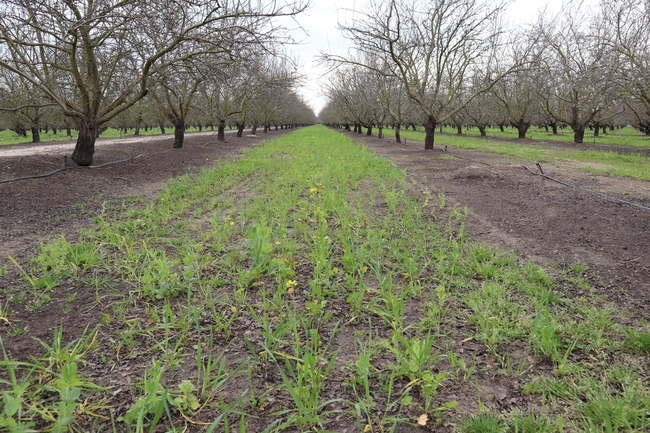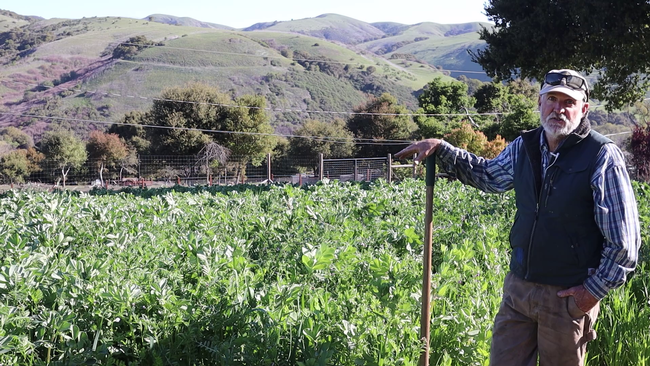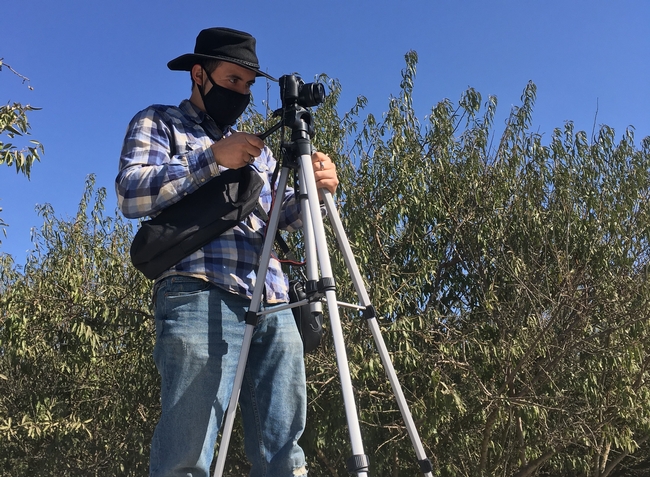Cover cropping season has begun: Free recorded webinars, demos available
Cover crops, typically planted in early fall, deliver a host of agricultural and conservation benefits. But many growers have gone away from planting them due to technical challenges and extra costs associated with the practice. In partnership with the Contra Costa County Resource Conservation District, two University of California Cooperative Extension advisors collaborated to support farmers' cover cropping efforts and reduce costs.
Kamyar Aram, UCCE specialty crops advisor for Contra Costa and Alameda counties, and Rob Bennaton, UCCE Bay Area urban agriculture and food systems advisor, developed online project content for a free educational series on cover cropping, which entails growing non-cash crops to add beneficial biomass to soils.
The series – comprising 10 webinars and five virtual farm-site visits – features UC farm and urban agriculture advisors and some of California's foremost experts on cover cropping. It helps growers overcome their hesitations about the practice, which provides benefits such as alleviating compaction, improving water retention and increasing organic matter and nutrients in the soil.
“Our site visit videos include a diversity of cropping systems, operation types and scales, and levels of experience with cover crops, so we really capture a variety of perspectives,” Aram said. “Now, with the videos online, I hope that they will serve as tools for other farm educators, as well as a resource for growers directly.”
When the COVID-19 pandemic scrapped plans for in-person workshops and visits, the series organizers pivoted to online webinars, starting in fall 2020, which drew more than 150 participants. The recorded videos – which cover basic methods, financial assistance, tips for orchards and vineyards and more – expanded the potential reach and impact of the series far beyond Contra Costa County.
“Each video, whether it's a webinar recording or a virtual site visit, emphasizes different aspects, and the titles are designed to help viewers find the resources they are most likely to benefit from,” said Aram. “There really is something for everyone.”
In particular, the organizers of the series recognized the importance of including technical and extension support to urban and semi-urban farmers in the East Bay and beyond.
“We wanted to make sure to include practical support from fellow farmers that was both accessible and relevant to our diverse small and urban farmers,” said Julio Contreras, UCCE community education specialist. “This meant covering topics like seeding with spreaders or by broadcasting – using small equipment and machinery or no-till systems – and even cover cropping in planter boxes.”
Aram and Bennaton also credited their Contra Costa Resource Conservation District partners: Ben Weise, agriculture conservation manager; Derek Emmons, agriculture conservation coordinator; and Chris Lim, executive director.
The project, funded by a Specialty Crops Block Grant from the California Department of Food and Agriculture, was also made possible by the generous contributions of time and expertise from presenters and hosts of farm-site visits, according to Aram.
“I hope that the videos will enjoy a long life online; they really contain a wealth of knowledge,” he said.
The series is available for view at http://ucanr.edu/CoverCropsCoCo.



